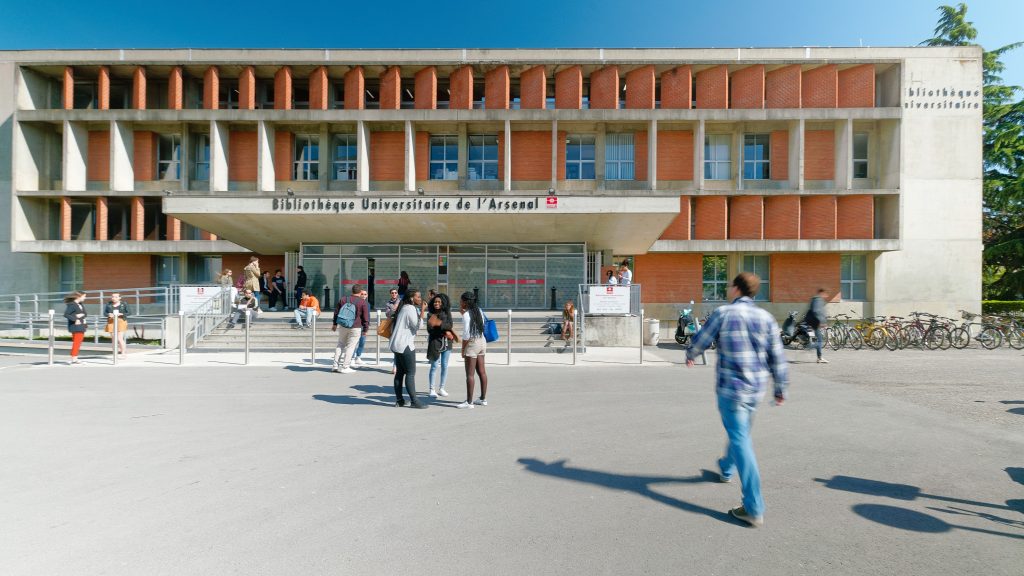
By: Marie-Françoise Brémond
Head of Publications Service, Research Support Department, Toulouse Capitole University Libraries
IALL bursary recipient 2022
Building Open Science : European and French initiatives
Developed first by scientists themselves since the 1990s, open science has gradually become part of public policy around the world since the 2010s. In Europe during this period several initiatives have been consolidating the open science movement. In 2010 Setting up of OpenAIRE (Open Access Infrastructure for Research in Europe). This structure aims to participate in the development of open access in Europe between the 27 member states. OpenAIRE is part of The European Framework Programme for research and technological development, Horizon 2020. In 2012, the European Commission published its recommendations “on access to and preservation of scientific information”. Then, during the Dutch Presidency of the Council of the EU in 2016, the Amsterdam Call for Action on Open Science proposed 12 actions to provide access to scientific publications and data resulting from publicly funded research. In June 2018, the European Commission decided that the principle of “open science” becomes the modus operandi of Horizon Europe by requiring open access to publications and data. In a press release dated 20 December 2021, as European Open Science Days approach, the G6 network which brings together the main European multidisciplinary research organizations (CNR in Italy), CNRS (France), CSIC (Spain), Helmholtz Association, Leibniz Association et Max Planck Society (Deutschland), wishes to highlight the common positions of the organizations on open science.
In France, following the Amsterdam Call in 2016, the country adopted the law for a Digital Republic. Article 30 of this law enshrines the right for authors to make available free of charge the final version of their manuscript accepted for publication and the free re-use of the scientific data they produce, as long as the research activity is financed at least half by allocations from the State, local authorities, public establishments, subsidies from national funding agencies or by European Union funds. (Some publications remain outside the scope of the law: monographs, collective works, PHd theses, collections of essays and conference proceedings).The desire to change research practices and join the open science movement takes shape in 2018 in France with the First Open Science Plan announced by the minister for higher education and research. This plan is based on three axes: the first consists in generalizing the opening of publications, the second concerns the opening of research data and the last aims to place France in a sustainable, European and international dynamic. In July 2021 the Second Plan for Open Science “Generalising open science in France” sets out actions to transform practices to make open science the principle.
An open archive for open science in Toulouse Capitole University
Toulouse Capitole University[1]‘s entry into the open science movement began in 2008 with the participation of the library in the European project of the creation of a European portal for research publications in economics: the NEEO (Economists Online) project led by the Nereus consortium and subsidized by the EU.After selecting the EPrints software, the database is populated by loading records from the NEEO database and from PHd theses defended at our university. So at the beginning publications are only in economics. In 2011 the library received funding so that the database can identify publications by legal researchers. Toulouse Capitole Publications open archive is therefore operational from that moment on and reports the publications of researchers in political science, economics, law and management but most often only with bibliographical references.For several years our aim has been to make researchers aware of the importance of depositing full text in the open archive.The law for a digital republic has provided a legal framework for this practice and the two national plan for open science has led to a significant commitment from the academic community to open science.
For scientific and technical information professionals, the European initiatives implemented at the national level in the plans for open science make it possible to implement put in place practices aimed at raising awareness and supporting researchers and doctoral students in the challenges of open science.At Toulouse Capitole University, we have been running awareness-raising activities on open science for doctoral students in law for several years now : we offer a course called “law and open science, why publish our thesis on open access ?”. In 2021, the library participated in a call for projects and won a grant to make short films on open science: Coup de toner sur la science ouverte. For example, we are now using these four humorous videos to introduce these subjects to students.
Our action with researchers consists of promoting the use of researcher identifiers, and the deposit of full text in the open archive, which in law is not yet common practice probably due to the organization of legal publishing sector in France.
Policy for open science
Over the past year, our open science policy has taken on a new dimension with the issue of research data management.
Two important projects for our university encourage us to implement good data management in our university. Firstly, a regional project which aims to label the institutions of Toulouse on the issue of research data. And secondly, a European alliance project, Engage EU “The European university engaged in societal change”, in which Toulouse Capitole University is participating.
In order to carry out these two projects, our institution aims to set up a support for data management: training in the drafting of a management plan, assistance in a management plan, help with storage and archiving, and legal assistance on intellectual intellectual property issues. Leader in several packages on the questions of open science and open data issues in the Engage project, exchanges with our European partners allow us to be in conformity with the current recommendations in favor of the opening and sharing of data. In 2023, our university is moving towards open science and is making this commitment to a more open, transparent and citizen-friendly science by drafting its roadmap for open science.
Sources
https://www.science-ouverte.cnrs.fr/en/national-context-for-open-science/
https://www.legifrance.gouv.fr/loda/id/JORFTEXT000033202746
[1] University in law, economics and management
This Blog contains entries by members of the International Association of Law Libraries on issues germane to the Association’s areas of focus. Views expressed in an individual entry only represent the views of the author.
